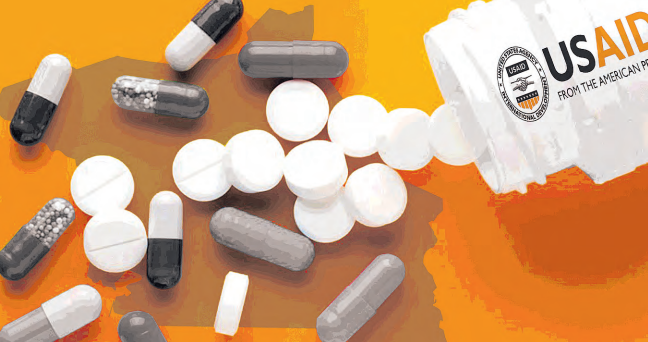Different medicines. Imports make medicines expensive and supply unreliable, dependent on global supply chains.Africa carries a heavy health burden. It accounts for 25% of the global disease burden despite having only 18% of the global population.
The situation reflects deep-rooted challenges in healthcare access, infrastructure, and socioeconomic conditions.
Yet the continent produces only 3% of global medicines. It imports over 70% of its medicines. This makes medicine expensive and supply unreliable, dependent on global supply chains.
The COVID-19 pandemic starkly exposed this vulnerability. Major medicines exporting countries such as China and India imposed export restrictions to prioritise domestic needs. This left African manufacturers unable to source critical ingredients and medicines. As a result many local pharmaceutical operations stalled. Essential medicines, including antibiotics, antimalarials and cancer treatments, became scarce.
At the heart of the challenge is the over-reliance on imports of active pharmaceutical ingredients. These are key components that make medicines work. Without them, there are no drugs.
Africa imports over 95% of its active pharmaceutical ingredients, mainly from India and China. Importing them makes local production expensive and vulnerable to foreign pricing. This dependency has a severe impact on access to essential medicines.
One example is capecitabine, a medicine used to treat certain cancers. In South Africa, for instance, a six-month course of capecitabine costs about US$2,200. The price underscores the affordability crisis in cancer care across the region.
Making active pharmaceutical ingredients locally would reduce costs by cutting out import fees and shipping delays. It would also boost local economies by creating jobs and encouraging innovation.
I am a chemist with expertise in developing agile, cost-effective and Afrocentric processes for producing active pharmaceutical ingredients. In a recent review, my co-authors and I highlighted the benefits and hurdles in the local manufacturing of active pharmaceutical ingredients on the continent.
We recommend sustainable ways to establish local production capabilities, using modern manufacturing technologies. One of these is continuous flow manufacturing, a production method where medicines are produced in a continuous stream rather than in batches. It enables faster, safer and more consistent production with less waste and cost. This could make African production more competitive and sustainable.
But no single technology is a silver bullet. A combination of traditional and modern methods, tailored to local needs, will be key to building a strong pharmaceutical sector.
We provide examples of countries on the continent which have gone some way to developing manufacturing systems like this. We also outline the hurdles facing full-scale implementation. These include insufficient pilot facilities, funding, and infrastructure costs. A lack of skilled talent is another major hurdle.
Progress is underway
The good news is that momentum is growing. Several African companies are leading the way in producing local pharmaceutical ingredients. These include:
The governments of Kenya, Ghana, South Africa and Nigeria are also investing in public-private partnerships to support this shift.
A great deal of investment is needed. A report by the African Development Bank said an estimated US$11 billion would be needed by 2030 to fund the growth of Africa’s local pharmaceutical industry. This includes manufacturing of active pharmaceutical ingredients and vaccines.
We identify a number of encouraging developments.
In 2023, Emzor Pharmaceuticals secured €14 million from the European Investment Bank to establish a manufacturing plant in Nigeria. This is aimed at accelerating the production of malaria treatments.
The South African government recently supported the establishment of FuturePharma. This is an open-access facility at the Council for Scientific and Industrial Research (CSIR). Its purpose is to assist pharmaceutical companies across Africa by providing research, development support and workforce training. It is also an investment in reducing the risk in modern active pharmaceutical ingredient manufacturing.
In addition, research institutions and universities are pioneering research and development in continuous flow manufacturing. Their work focuses on adapting the technology to make production more cost-effective, sustainable and locally viable.
The vision is a continent where every country can produce its own affordable medicines and respond quickly to health crises. It also seeks a thriving pharmaceutical industry.
With growing partnerships, new technologies and rising investment, this future is within reach.
But there are hurdles. Africa still imports most of the raw materials needed to make the ingredients. This makes local production expensive and vulnerable to foreign pricing. There’s also a shortage of skilled workers, limited access to capital, and outdated infrastructure.
Solving the challenges
To overcome these barriers, there is a need to:
invest in local production of raw materials
offer tax breaks and subsidies
improve electricity supply
expand training programmes.
Skills development is being driven through various initiatives. Examples include the Council for Scientific and Industrial Research Workforce Development Programme and the African STARS (Science, Technology and Research Scholars) Fellowship. Hosted by Stellenbosch University and Institut Pasteur de Dakar, they are helping build a skilled pharmaceutical workforce across Africa.
The initiatives offer tailored technical and leadership training, equipping young scientists from academia and industry to drive sustainable, responsive local medicine and vaccine production.
Cloudius Ray Sagandira, Principal Researcher, Council for Scientific and Industrial Research
This article is republished from The Conversation under a Creative Commons license. Read the original article.


